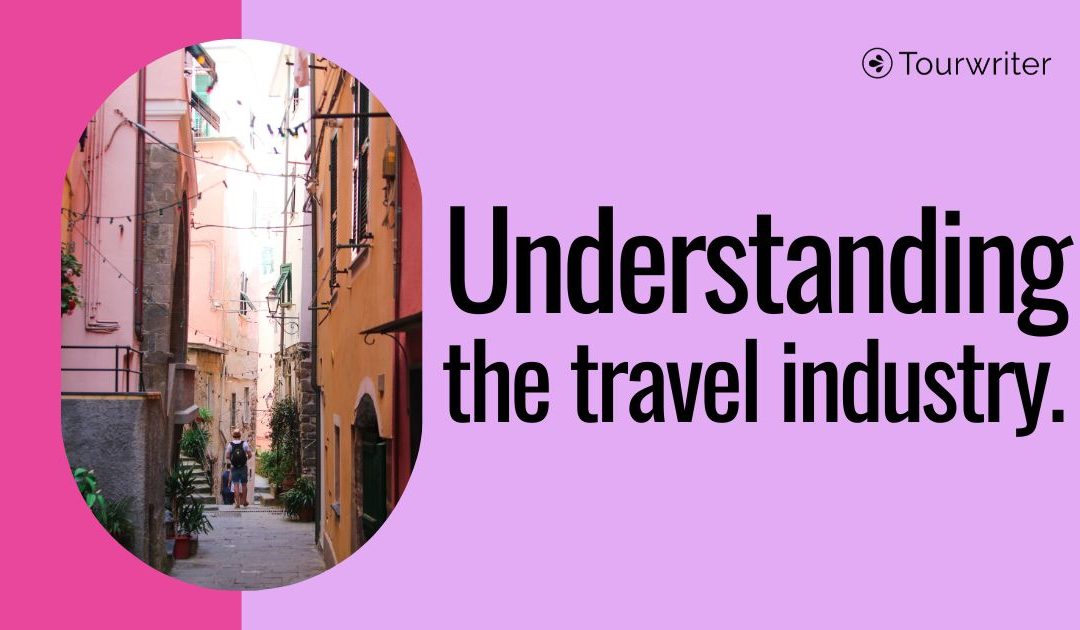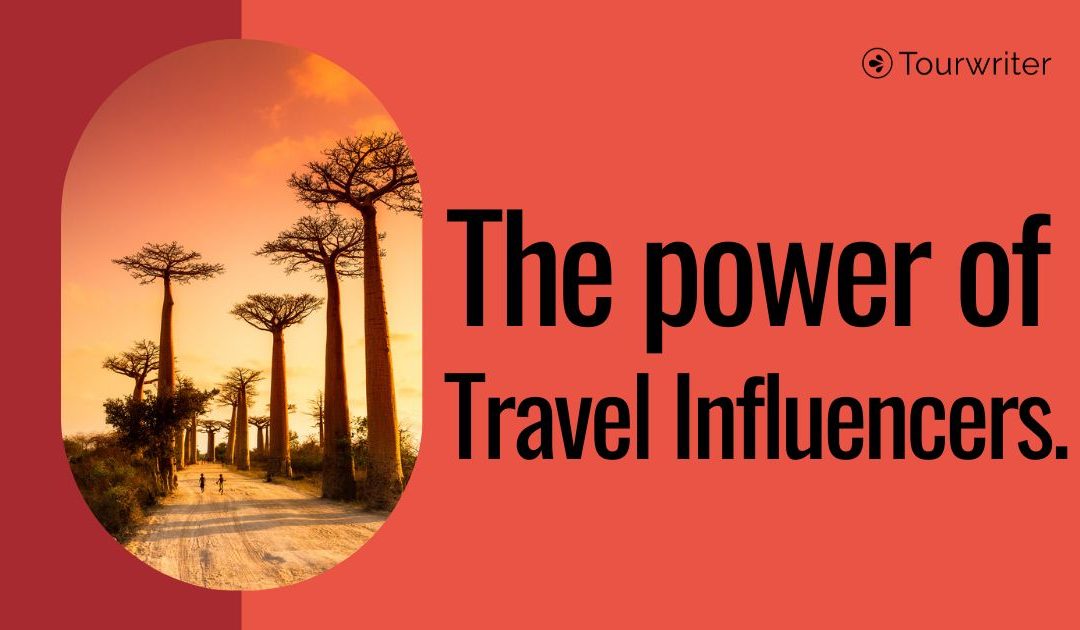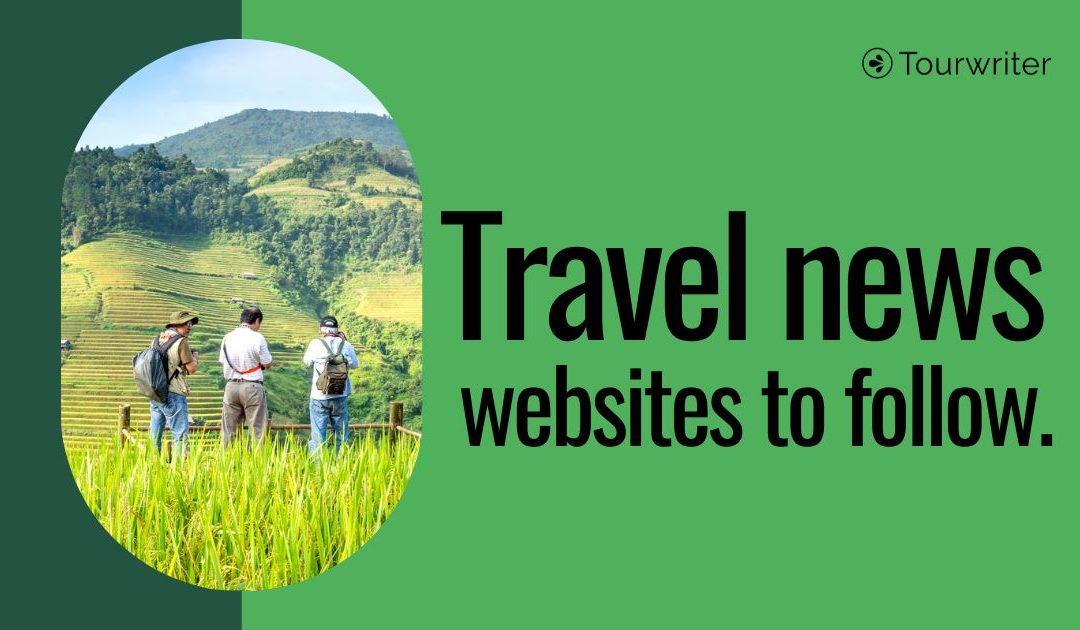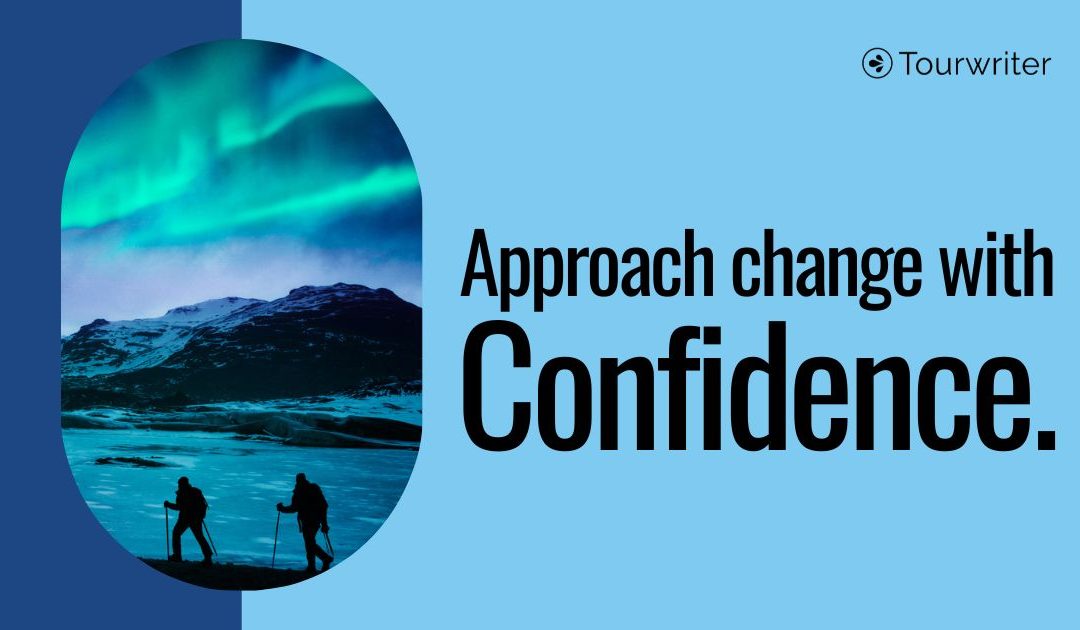How to prepare your tourism business for a COVID-19 vaccine
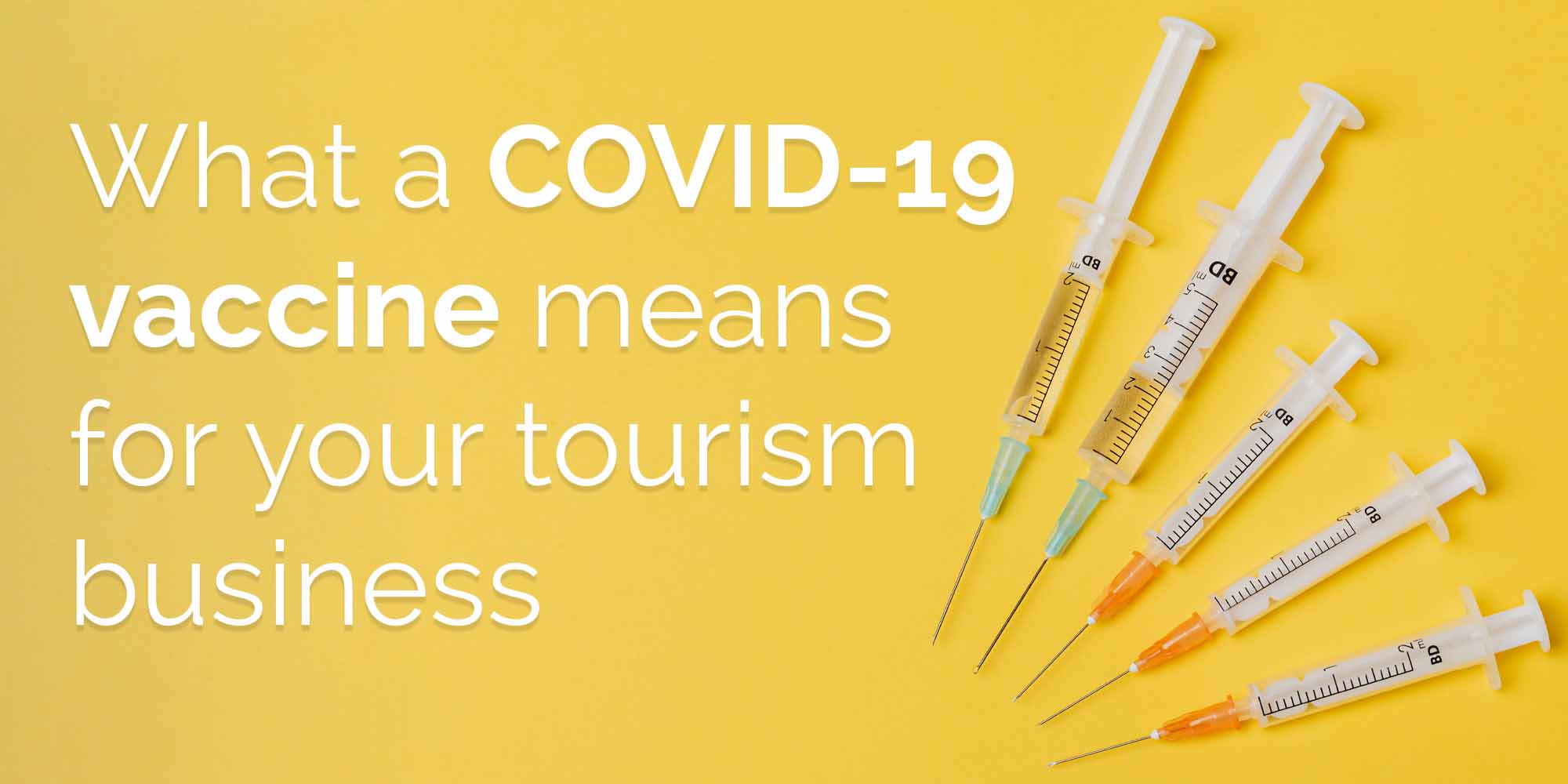
With news that a number of potential COVID-19 vaccinations are in their final stages of development, the light at the end of what has been a long dark tunnel is starting to shine brightly for hibernating tourism professionals. Like many, we have been counting down the days until a sense of normalcy returns for the tourism industry, and it is so close that we can’t contain our excitement any longer. The medical advancements of Pfizer, Moderna and AstraZeneca, have cemented the hope that we have been so greatly nursing. It is amazing how this injection of confidence has reset, refreshed and recharged the minds of travel experts and tourists around the globe as the conversation of international travel is reopened.
With excitement can come trepidation and we are all too aware of the nerves that may be bubbling beneath the surface as vaccination news is released. Businesses around the globe have been in survival mode for the past nine months and it is understandably frightening to imagine that this might be the start of the tourism rebound.
Whether your fear stems from navigating a completely different looking sector and market, or simply that you feel out of practise, we believe that the best way to fight nerves is quality information followed by action. Knowledge is power. So, in this blog we’re unpacking what we know about the vaccines so far, how they will impact global tourism and detailing everything you should expect in the coming months to help get your travel business prepared.

First things first; let’s set some healthy expectations around timing. Some media outlets and politicians have been quick to jump on the bandwagon about how soon vaccinations can start to be administered. There is no doubt that the freedom effective COVID-19 vaccinations will bring is exciting news, and the world needs a little bit of that at the moment. With that being said, we think that it is important to pump the brakes a little bit and be realistic about what these vaccinations can actually deliver for the industry, and very crucially, when. As tourism professionals we would encourage you, and your team, to be prepared; we will have to hunker down in the trenches for a little while longer.
Early reports are suggesting that in a best-case-scenario, some vaccines may start rolling out at the end of 2020 which will go to a small number of FDA-approved, front line workers first. Next on the priority list will be at-risk members of the population (immunocompromised, elders) who reside in developed countries such as the UK, Australia and the USA. It’s expected that this demographic will begin receiving public vaccinations in March 2021 while the general population will likely have to wait until July 2021. Science Alert predicts that herd immunity from COVID-19 within the general population won’t be achieved until some time in 2022 when approximately 2 billion people worldwide will have been vaccinated.
Despite the collective hopes of the tourism industry, free flowing international travel will not happen the moment the first wave of vaccinations rolls out into the general population. According to predictions, it is more likely that there will be a staggered re-introduction of travel movements, beginning around July 2021 and slowly ramping up into 2022. While this means more waiting for our already struggling industry, patience is a virtue and all great things take time.

As they did with their COVID-19 response, each country will have a slightly different vaccine strategy moving forward. For most governments, the goal is to secure a safe, effective vaccine in sufficient quantities to vaccinate the general population and establish herd immunity (approximately 55-60% of the population).
Unfortunately, that is where the similarities end. A country’s wealth, population, accessibility and health infrastructure are all significant factors that will influence the speed at which free-flowing tourism resumes. Wealthy developed countries have been able to reserve over 500 million preliminary doses of the vaccine before the rest of the world, simply because they have the means to do so. The Guardian predicts this number will rise to over 1 billion doses procured through these advances purchase agreements; something that developing nations simply cannot compete with.
When it comes to tourism, it is fair to say that free-flowing travel will resume between developed countries first; in fact, Google Trends is already seeing a spike in interest travel to Europe. This means that poorer nations whose GDP relies heavily on tourism are expected to experience a reemergence of tourism later in 2021, keeping their borders restricted until the health crisis is able to be controlled.
On the contrary, for those countries relying heavily on tourism, we may also notice that they open their borders to vaccinated individuals, regardless of whether their own population has been inoculated yet. Experts believe that this may happen, however it is expected that travellers will desire to visit countries that they believe managed the virus well such as Taiwan, Japan, Dubai and New Zealand. Traveller confidence and trust building has become essential in the wake of COVID-19 with countries that are perceived to be safer, more reactive to the virus and managing it in a controlled, calm manner, are essentially going to get higher traveller visitation first. For these countries such as the ones listed above, their COVID-19 response has thrust them into the spotlight as bucket-list destinations for travellers worldwide.
View vaccination rates per country in this live ‘Our World in Data’ report.

Sometime within the next six to twelve months, the world will be split into two; those that have been vaccinated, and those who have not. It is troubling that the world could be any more segregated than it already is, but with health at the forefront of everyone’s minds, this distinct divide is inevitable. From a travel perspective, it is clear that accessibility to international travel will largely hinge on a person’s vaccination status as the world rushes to halt the spread of COVID-19 through global movement.
As a tour operator trying to bounce back during all of this, your customer record management (CRM) is going to be more important than ever before. Everyone around the world, and in particular travel professionals, have a responsibility to monitor and enforce health restrictions for the greater wellbeing of the population. You will need to collect, store and easily retrieve customer data such as country of origin, vaccination status, vaccine version, date of vaccination and any associated vaccine booster. It’s information like this that border control agents and government officials will be rigorously checking as travel begins to resume. Remember, at the end of the day, it is better to be safe than sorry. Just one person failing to hold the correct documentation and vaccinations could see the spider web of COVID-19 stretch even further.
Ensuring that your itinerary builder software is equipped with a place to store this vital health information will help you ensure you are sending your travellers to regions they meet the requirements to enter. Tour operator software that allows you to immediately access this information will also help you target qualified leads with confidence.

The ICVP (International Certificate of Vaccination or Prophylaxis) is a World Health Organisation certificate that was introduced in the early 2000’s as a way to combat the spread of Yellow fever. Currently countries in mosquito hotspots such as Angola, Ghana and Niger, require visitors to have a valid vaccination certificate before they are given entry to each respective country. Not only has this certification system quite literally been a lifesaver for thousands of vulnerable individuals in Africa and South America, but it has established a valuable papertrail for traveller movements and health statuses.
While this certificate is predominantly used for recording Yellow fever vaccinations, it is expected to be a crucial tool in documenting travellers’ COVID-19 vaccinations globally. The ICVP has proven to work well in managing the spread of a potentially deadly disease, and the same principles could easily be applied to the COVID-19 pandemic. More information from the WHO will undoubtedly be released as vaccinations continue to roll out, but taking time out now to understand the ICVP requirements will help you be on the front foot when it comes time to start collecting this information. Instead of seeing this as an imposition, simply see it as an additional ‘passport’ that all international travellers will require going forward. Click here to view the WHO information about the ICVP and download the certificate.

New trends, traveller demands and expectations have been thrown around throughout the course of 2020 and will most probably continue to flood the industry as we are in this period of uncertainty. It is however clear that one trend will shift the direction of the market as people race to be one of the first to be protected against coronavirus. Tourism experts are predicting that the COVID-19 vaccine will see the emergence of a new niche market. Similar to medical tourism where people travel internationally with the purpose of accessing more affordable medication, procedures or surgeries, ‘vaccine tourism’ will see people travel abroad for the highly sought after vaccine. Travellers falling into this niche market will likely be those who are deemed as lower on the vaccination priority list in their respective countries and are willing and able to pay their way to receive the shot more quickly.
For this reason, it is expected that this niche will only apply to the most affluent travellers. We know that tour operators can be eager to capitalise on any profitable market given the times but we caution that this demand will only be temporary. Before you go pivoting your business to serve this market, please take note that vaccine tourism is not expected to last longer than a year. Clearly, as soon as vaccines become widely accessible, the need to go abroad for a COVID-19 vaccine will diminish.
If you are hungry for more thoughts on how to prepare for the return of travel in the wake of COVID-19, check out our What tour operators need to do to prepare for 2021 blog
Information in this blog is based on information gathered on 23 November, 2020. Please refer to the tourism guidelines within your country for more detailed information about how to prepare your travel business.
Sources:
Science Alert
New York Times
CNN
The Guardian
Newsroom NZ
World Health Organisation

